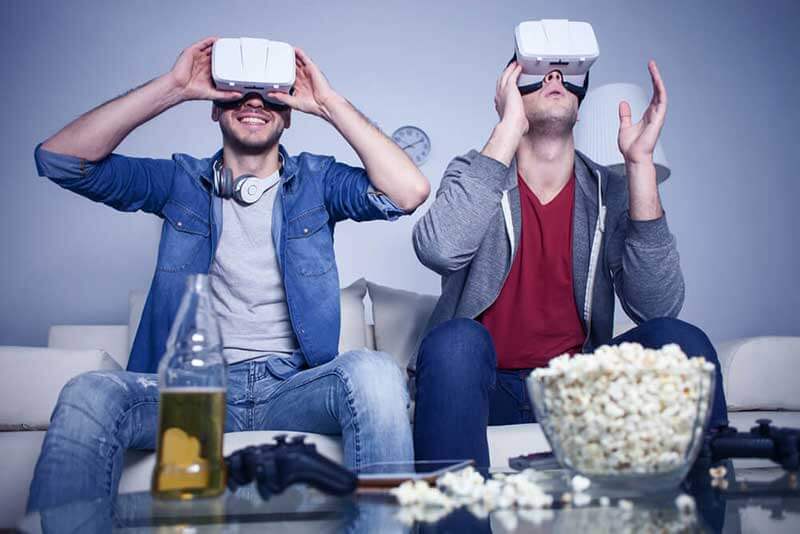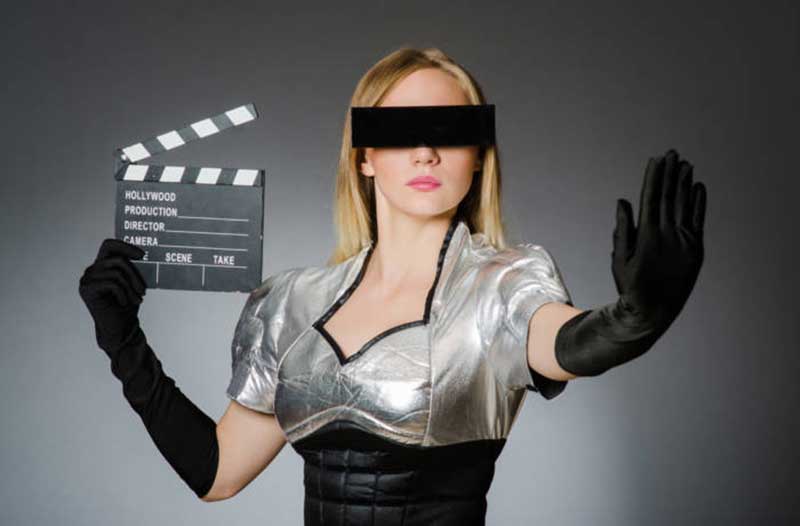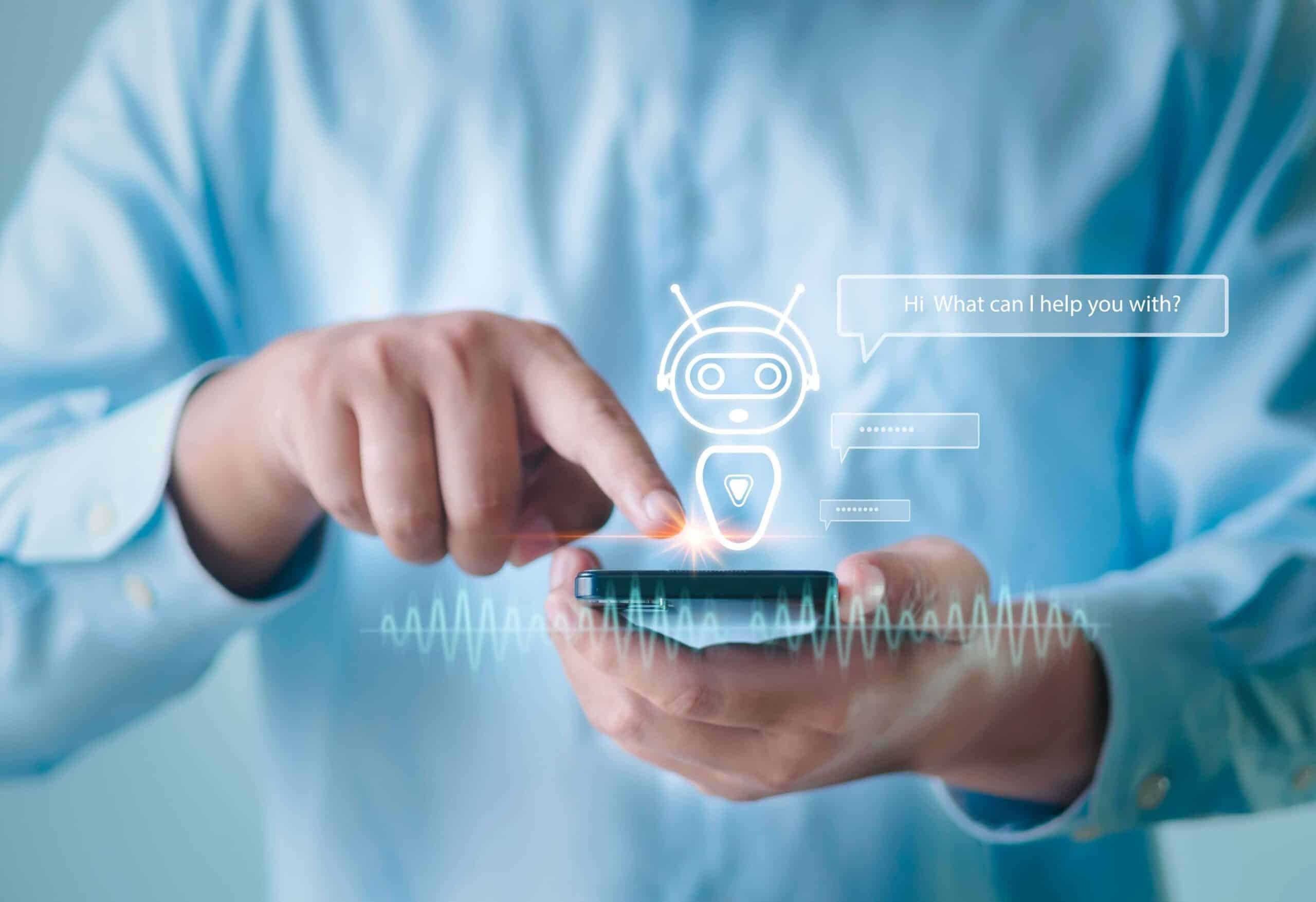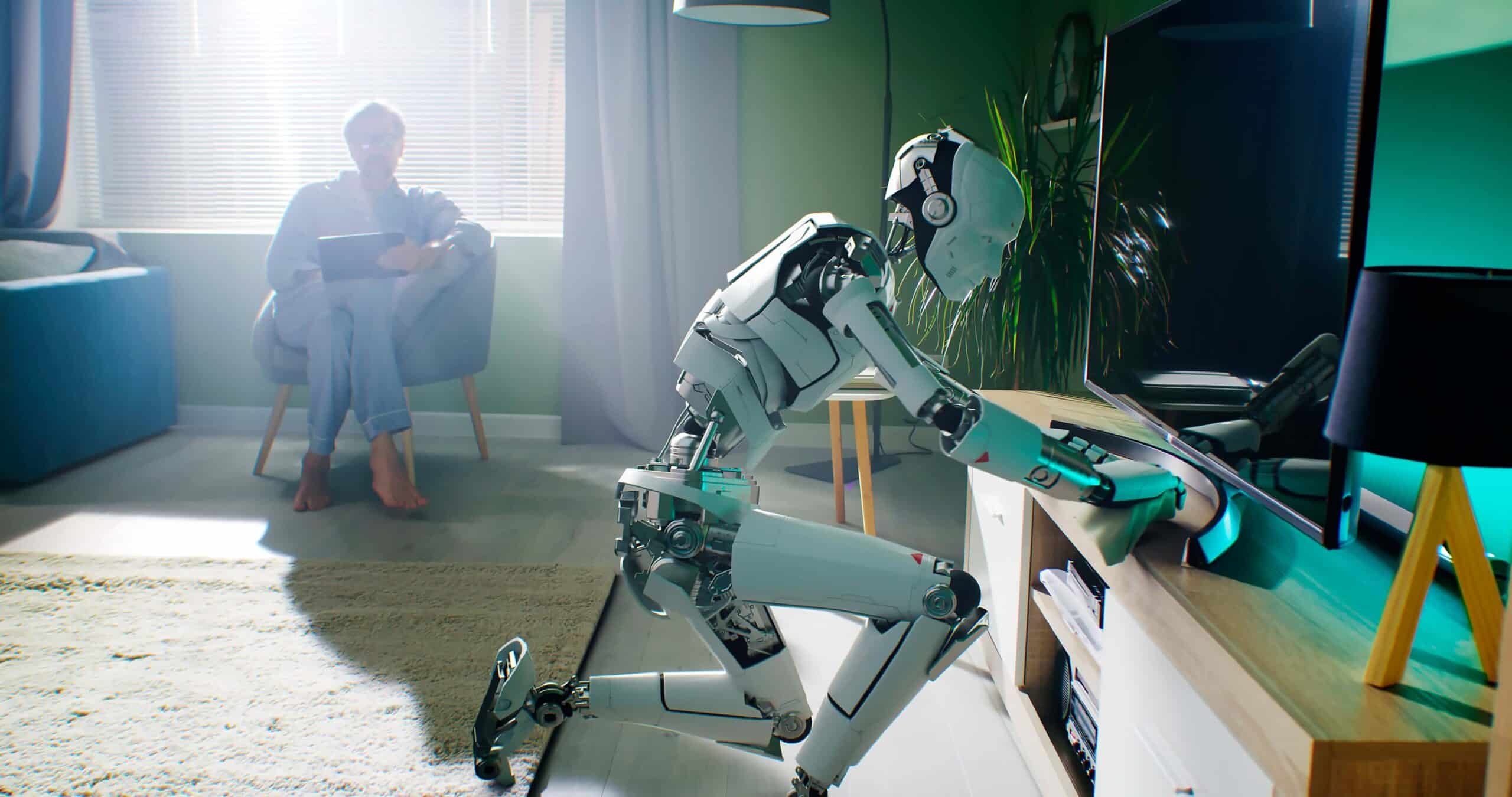- Entertainment will explode into something we can’t even begin to imagine
- Content and who produces it is changing
- Move over Spielberg, here come the machine produced movies
- We’ll be – subconsciously – creating our own entertainment
- In the future, the news will come looking for us
- What’s real and what’s not will be hard to tell with virtual and augmented reality
- Live streaming content directly into your brain
- Back to the basics, at the heart of the entertainment
Within ten, even five years from now, we’ll be able to fully, virtually, submerge into the worlds of our favourite games or movies. Content will be delivered via various devices that are all connected to enable a multi-sensory experience. Special effects such as earth quakes or explosions in your movie or game will translate to a vibration in the fitness tracker on your wrist or a sensation of heat from your smart mattress. In the future, you don’t have to leave the house, or even your comfy couch, to be entertained. Technology will completely transport you to the world of your choosing – whether real or fictional or a combination of the two.
Entertainment will explode into something we can’t even begin to imagine
Entertainment, like many other areas, has been evolving since forever. Its origins can be traced back to the first Olympic Games in fact – now transformed into a global, multibillion dollar industry. As new content is created and populations with more disposable income increase, the entertainment industry will explode and touch every aspect of our lives in ways we can’t even begin to imagine. Interestingly, the way we experience entertainment will actually move away from our main screens through which we now basically only observe. Ironically, we are moving back to the type of entertainment that our forefathers enjoyed more than two millennia ago: by virtually being there.
Entertainment content – and who produces it – is changing
Just two decades ago, if the average Joe wanted to do a movie or other type of entertainment production, he would have to invest in specialist equipment that cost tens of thousands of dollars. Those days have long gone. Every Tom, Dick and Harry – from anywhere at all – with or without experience or degree – can now curate and publish interesting content, using only their smartphones, an Internet connection, a good eye and a feel for what the audience wants. The entertainment industry is flooded with non-professionals who don’t have and don’t need the expensive equipment from the ‘old days’. Their YouTube channels explode, their content goes viral and they become celebrities overnight. Justin Bieber, hiphop artist SoulJa boy and Tonight Show’s Jimmy Fallon are good examples of this. However, the balance of power that has now shifted from the large corporations monopolising the industry to the savvy individuals who create interesting content by showcasing their talent and ‘playing around’ – will shift again. And it will be a shift away from humans.

Move over Spielberg – here come the machine produced movies
Ultra HD rendering engines and computer generated imagery have been replacing props, locations, extras and even actors for quite a few years already. News articles, books and scripts are already being written by machine learning systems and weather, sports and news commentators are increasingly being replaced by computers. With developments in technology exploding the way they are, it won’t be long before we’ll be watching the first machine produced movies. The film scripts will be written by machine learning systems and movie directors will be replaced by artificial intelligence directors that will be able to give logic-based creative direction. It does this by drawing information from a database to determine which factors make for the perfect entertainment content. With each movie, the artificial intelligence director gains more knowledge that it can apply to future productions. The actors, camera crews, locations and props will have to make way for cognitive computing and ultra HD digital imaging generators, while machine vision technology – the automated extraction of information from digital images or video – will not only monitor the public in real time; it will also become the movie critic.
We’ll be – subconsciously – creating our own entertainment
The exponential increase in graphics processing technology, combined with all of these abovementioned technologies will catapult us into a new era of real-time content curation. Via the cameras in our mobile phones or our TV or smart fridge, our homes will be invaded with machine vision which will track, learn and then predict what our reactions and behaviour and preferences are likely to be. With this information gathered, the artificial intelligence director will change the story in the movie to suit your preferences. An example of a successful creative product that used big data from viewer’s responses to develop storylines is the TV series ‘House of Cards’.
Scanning and rendering technology with nanometre accuracy will create the illusion that you and the ones you’re watching the movie with, are actually there. While 500 million people in the world speak English, this is not true for the remainder of the earth’s population. This is no problem for future technologies. Whether you speak Mandarin or Xhosa, Arabic or Tagalog, natural language processing technology will take care of instant, near-perfect translation of any type of content to make sure it comes across just right.
In the future, the news will come looking for us
In the old days, it was the professional journalists that ventured out into the world, gathered newsworthy content and brought it to the public. We bought the ‘action, action, read all about it’ from the newspaper stands. Today we check our Twitter feeds to keep up to date with the latest news – which is increasingly generated by machine learning systems. Instead of reading the weekly opinion columns in the back of the newspapers, we now subscribe to as many blogs as we want, with content that mirrors our own opinions, and read it at our leisure. Once upon a time, TV content was curated by the television studios and we watched it via our cable networks – now we consume it via the Internet. With the new high altitude stratospheric mobile communication platforms such as Facebook’s Project Aquila and Google’s Project Loon – the earth’s last remaining ‘unconnected’ will be connected soon. Travelling into the future, each and every piece of content will be smart and machine learning algorithms will enable the content to seek out its own audience.
What’s real and what’s not will be hard to tell with virtual and augmented reality
The developments in virtual reality and augmented reality are growing exponentially and it won’t be long before augmented reality is fully integrated with what we experience in the real world. This will be made possible with high tech hardware such as screenless retinal display systems in which images are projected directly onto the retina. Content will be popping out of screens everywhere – our smartphones, fitness trackers and smart mirrors, thanks to holographic technology. Haptic clothing, virtual reality, sound and sensory technologies will further blur the lines between reality and fiction.
Live streaming content – directly into your brain
And as if all of the above technologies aren’t mind blowing enough, here’s some more. With the future non-invasive next generation brain computer interfaces, content will be streamed directly into your brain, practically rendering all of the previously described content delivery mediums redundant. Your grey matter will be fully engaged, your emotions stirred and your psyche explored, after which any and all findings will be relayed back to the cloud. This is where the master of entertainment – the artificial intelligence director – will curate new content and further customise and enhance your experience so that you can consume it just the way you like it.
Back to the basics, at the heart of the entertainment
Further to our previous example, the Olympic Games in Rio will be watched by close to five billion people, many with access to all the analyses and statistics they could possibly want. We will be able to fast forward, pause, rewind and repeat; incredible technological developments that enable us to almost experience it the way our ancestors did. Actually, the ‘Greatest Spectacle on Earth’ is a profound example of how entertainment will turn ‘full circle’. At the Olympic Games stadia in 776BC, spectators were literally only a few metres away from the action. They could feel the sun and the wind, smell the sweat, taste the dust, and feel the sound and vibration of the roaring crowds in the arena. As time progresses, technology will do away with our glass screens and with access to any type of connected device – enhanced with virtual and augmented reality – you will be there again, right where it happens – at the heart of the entertainment. Even though you’re still on your comfy couch.





